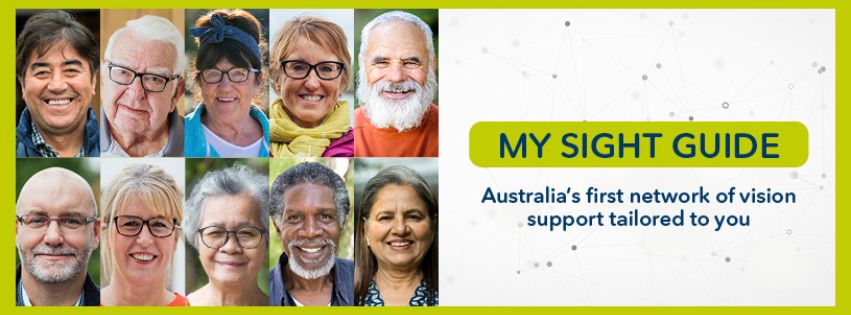Living with low vision: How to lead a confident, independent life in the years ahead

Being diagnosed with vision loss is a life-changing event — but it doesn’t mean giving up your independence.
When coming to terms with a diagnosis, it’s natural to feel overwhelmed by practical concerns: How will I take the bus? How can I keep working? How do I stay in touch with my friends and family? How do I keep living the life I want?
Thankfully, there is now an easy first step to help you navigate your journey.
With the right resources, technologies and services, you can stay independent and connected to the community. The sooner you can familiarise yourself with what’s available, the smoother the transition will be. And thanks to a new initiative from Guide Dogs NSW/ACT, this information can be found through one free, easy online service you can join right here and now.
Read on to hear from Alan and Angela, two people who continue to live life to the fullest.
Angela’s Story
Angela has lived with low vision all her life. She has glaucoma with aniridia — her left eye is entirely artificial and her right eye only grants limited sight, often requiring her to squint. However, she attributes her independence to her determined spirit and perseverance, as well as technology.
“I wouldn’t be without my technology. It gives me my freedom, it gives me my independence to do what I want to do.”
Angela uses a range of devices and digital technologies to support her independent lifestyle, such as getting recipes from Google and having them read out loud to her.
She advises that one of the most important first steps for people who have been told their vision is failing is to get and learn their technology as soon as possible, while they still have their vision. Attaining digital literacy is much easier without having to simultaneously contend with vision loss.
Alan’s Story
Despite experiencing low vision, Alan continues to live life independently and continues to work in his office-based role.
Alan has retinitis pigmentosa, an eye condition that results in tunnel vision. He notes that his experience of living with low vision is exhausting, as he can often miss people or important environmental elements. However, he doesn’t let it stop him from living life to the fullest and has discovered innovative ways to remain independent and connected to the world around him.
“Using this technology where I can makes life easier and just helps me to maintain my independence and to be able to do things like work full time.”
Using apps and technology to recognise text and faces in the real world has allowed him to more easily navigate his environments, like his office. He uses big screens at his workplace so he can enlarge text, with darker colours and backgrounds for easier viewing.
“Often people don’t think they can do it when they really can if they want to and they get the right guidance and support and I think that’s the key.”
Thankfully, this support is now easier to access than ever before.
Navigating Your Journey towards independence
To provide a centralised and accessible centre of resources and support, Guide Dogs NSW/ACT has curated Navigating Your Journey (NYJ), a pilot programme and platform of trusted and reliable information co-designed by people living with low vision.
NYJ complements medical care by providing appropriate information that will help individuals that live with low vision to continue to live independently. This platform is designed with ease, reliability, and trustworthiness at its core. It serves as an alternative to potentially unreliable sources like Google.
One of NYJ’s key strengths is its user-centric approach. NYJ is backed by extensive research conducted by Guide Dogs NSW/ACT and co-designed by individuals with low vision, ensuring that the content and resources are practical, relevant and beneficial for those who need it most. This collaborative approach guarantees that NYJ addresses the real-life challenges and the needs of its users.
A standout feature of NYJ is the MySight Guide. The MySight Guide provides subscribers with FREE tailored information about their diagnosis and supports available for managing low vision. Based on information provided by subscribers, this service ensures that users receive the most relevant and practical advice to help them navigate their journey towards independence.
Learn more or sign up here.
IMPORTANT LEGAL INFO This article is of a general nature and FYI only, because it doesn’t take into account your personal health requirements or existing medical conditions. That means it’s not personalised health advice and shouldn’t be relied upon as if it is. Before making a health-related decision, you should work out if the info is appropriate for your situation and get professional medical advice.

Guide Dogs NSW/ACT has recently launched a free pilot program called Navigate Your Journey (NYJ). NYJ is a service for anyone who would like to know more about maintaining independence despite receiving a diagnosis of an eye condition causing low vision. The information provided is tailored specifically to an individual’s needs and is designed to help continue living the life you love.








 Proudly Australian owned and operated
Proudly Australian owned and operated